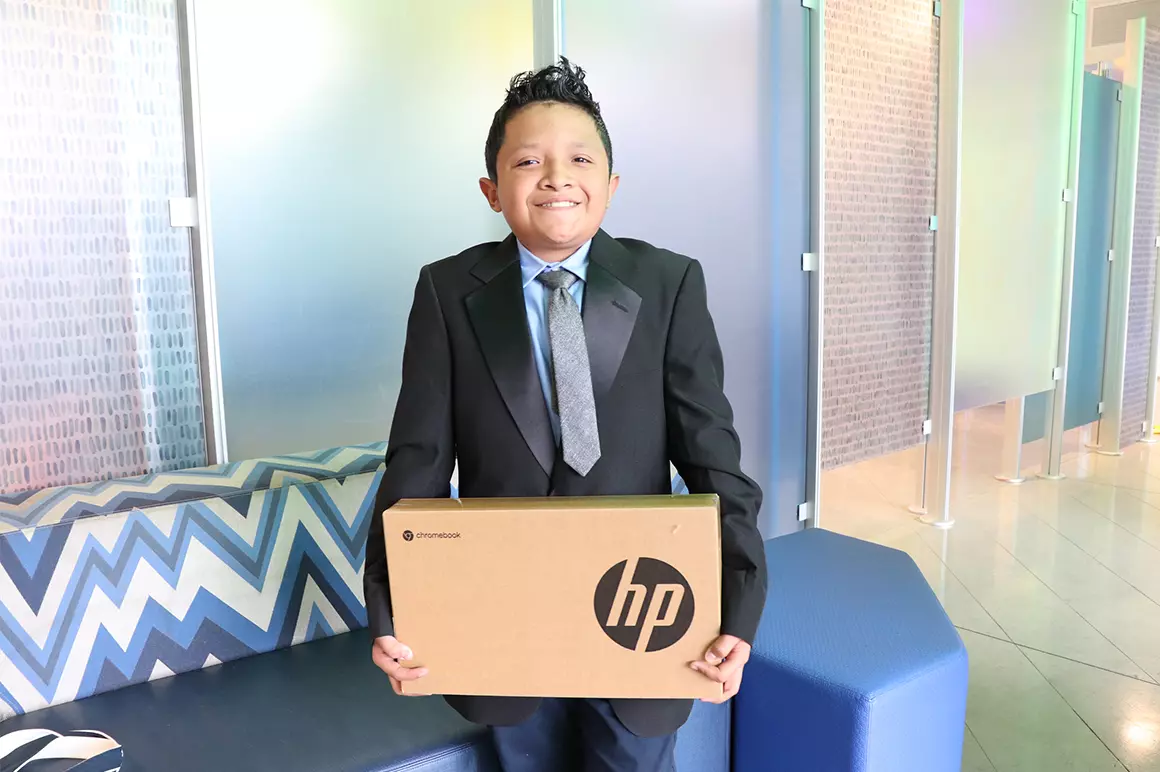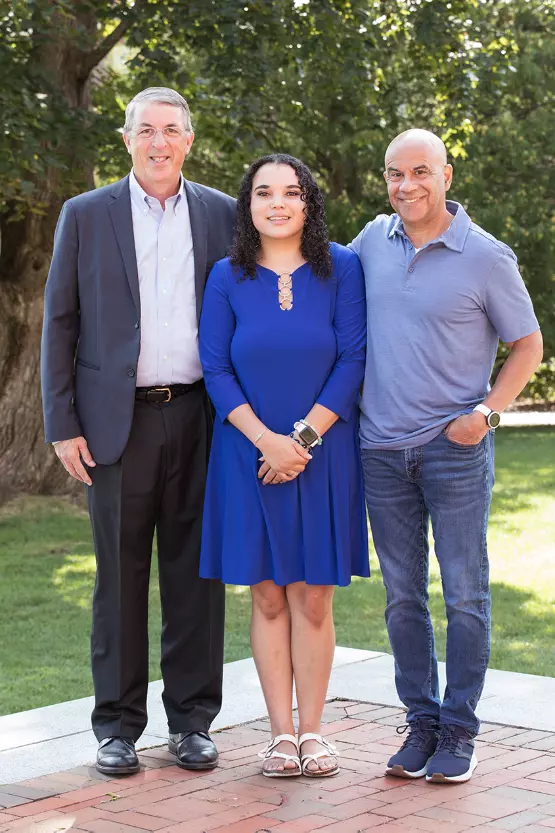Employees Lead the Way in HP's Racial Equality and Social Justice Task Force
In 2020, hundreds of HP employees joined the inaugural Racial Equality and Social Justice Task Force to help shape the company’s antiracism action. Here’s what they’ve been up to.
By Sarah Murry
In the wake of the murder of George Floyd 2020 and the social upheavals that followed, the hundreds of HP employee volunteers who joined an inaugural Racial Equality and Social Justice Task Force gathered not only to learn from each other, but to actively shape the strategy to break down barriers within the company.
Across the country, the desire and commitments for change were extraordinary and promising — from companies donating unprecedented funds to antiracist causes to venture capitalists directing dollars to invest in Black-owned startups. And at HP, the Task Force set an agenda and penned bold goals for the company, like doubling Black and African American technical representation and doubling the number of Black and African American executives by 2025.
The company is making early progress, says HP’s Chief Diversity Officer Lesley Slaton Brown. HP has increased the composition of Black and African American executives (in VP roles and higher) by 33%, and is gradually growing Black and African American technical representation.
“We have more work ahead of us to reach our goals and meaningful progress takes time,” she says. “It’s energizing and inspiring to see the enthusiasm and action from employees to help sustain the racial equity movement internally, and with their support as well as our leaders’ dedication, we feel confident we will continue to make strides.”
The Task Force aims to drive sustainable impact in racial equality by working across three main areas: People, Industry, and Local and National Influence. These focus areas have spurred some remarkable new local and national conversations and programs for HP, many of which came to life with the dedication of employees. One such example is last year’s HBCU Technology Conference, an idea conceived by an employee. Students, faculty and IT-staff and administration across 74 HBCUs joined the conference to gain latest insights into digital transformation.
Other initiatives were launched with the intention of putting rigor around specific benchmarks, such as aiming to have 10% of supplier account teams be Black and African American by the end of this year and shrink the digital divide in rural and urban communities by supporting state and federal legislative funding.
Below are just a small sampling of programs that have emerged from the Task Force’s work over the past 18 months.
Partnering for STEM education
The Channel Partner chapter of the Racial Equity and Social Justice Task Force partnered with the Austin, Texas Boys & Girls Clubs to deliver digital equity tools and programming, including more than 800 refreshed PCs, personalized laptop boxes, and laptop sleeves as well as 7,300 Turn to Learn Workbooks to students.
HP also joined an effort led by National Instruments to support a program that, in collaboration with the Thinkery children’s museum, immerses children in STEM. Together, they developed Collaboration to Realize Equity and Teach Engineering (C.R.E.A.T.E.), an afterschool program with focus on engineering and family engagement.
“The ultimate goal is to provide a safe and productive environment where children acquire the skills and knowledge they need to graduate from high school prepared for success,” says Devon Spencer, grants and compliance manager, Boys & Girls Club of the Austin Area (BCGAA). HP plans to continue to build relationships with Boys and Girls Clubs in Texas, and across the US.
Pathways in higher education
Inspired by longtime HP employee Denis Lynch and fellow Saint Anselm College alumni Keith Woolley, HP helped establish the Ernie Thorne ’34 Scholarship for Racial Equity, an award honoring the legacy of the first Black graduate of the New Hampshire-based school. Politics major Jasmine Marshall (class of ’23) was selected as the first recipient. Inspired by her great uncle, Supreme Court Justice Thurgood Marshall, she says she plans to attend law school and become a criminal defense attorney.
HP, meanwhile continued its work with HBCUs. The company is a founding member of the HBCU Business Deans Roundtable, which was set up in 2017, and has been hosting an annual HBCU Business Challenge for five years now. The challenge offers HBCU students an opportunity to develop business plans to tackle real-world challenges relevant to the tech industry and access to HP’s leaders, all of which helps prepare them to kick off a career in tech. Some participants landed internships or full-time roles at HP.
In 2020, HP also kicked off an innovative pilot program focused on 3D printing at North Carolina A&T State University, providing HP Multi Jet Fusion 3D color printing equipment and a commitment for internships and apprenticeships to the university’s College of Engineering and College of Science & Technology.
Investing in talent
HP is investing in the pipeline of Black and African American executive leadership talent through partnerships, including several advanced executive training organizations like McKinsey & Co.’s Black Leadership Academy, the Stanford Black Leaders Program, and Information Technology Senior Management Forum’s (ITSMF) Management Academy for Black leaders.
According to Slaton Brown in a World Economic Forum op-ed, retention of Black employees has already increased as result of these initiatives. Some 80% of employees who participated in the ITSMF program alone over the past years have been promoted.
HP’s diverse board of directors holds the company accountable and provides actionable guidance to help it meet diversity goals. For example, board member Stacy Brown-Philpot recommended All-In Recruiting, a Black woman-led firm that has helped HP add more diverse talent to our cybersecurity team.
Advocating for policy change
HP has also been advocating for local and federal bills that support digital equity, the biggest of which was the Infrastructure Investment and Jobs Act, which was ratified in November. The bill allocates some $65 billion toward digital inclusion, including the funding of what’s called the “middle mile” — rural or marginalized communities that lack access to broadband, says Brandon Hicks, social justice and racial equity policy project manager at HP.
“We’ve seen with the pandemic that it’s a necessity to have internet access and devices that allow students to learn and adults to access economic opportunities,” he says. “More importantly, we must ensure communities of color and other marginalized groups have access to 21st century technology so they don’t get left behind in the digital economy.”




